School of Languages and Cultures

We find ourselves in a period where the intricate interplay between language and culture is undergoing a profound re-evaluation. Rapid technological advancements, ecological imperatives and geopolitical shifts have collectively pushed language education and research into uncharted territories.
The emergence of new machine learning technologies and generative artificial intelligence promises to reshape the very contours of future cultural practice and meaningful human interaction (Harari, 2023).¹ At a fundamental level, the diversity of cultural and linguistic expression faces the risk of homogenisation through the overuse of these technologies. Simultaneously, ecological threats have also caused a need for a convergence across languages and cultures to describe and address planetary environmental crises (Chakrabarty, 2022).² Furthermore, linguistic forms and norms are increasingly challenged by seismic shifts in geopolitics.
Yet, within these challenges lies the potential for valuable scholarly responses and the opportunity to engage in trans/formative thinking and practice: (re)constructing ideas and practices that help us to think in new ways across the relationship between culture and language as we traverse new academic and intellectual frontiers.
What every Australian should know about the patterned configurations of contemporary Indigenous multilingualism – and what these teach us about policy and practice
Aboriginal and Torres Strait Islander Australians have always been positively oriented towards speaking multiple languages, with vibrant oral traditions. They have long advocated for multilingual outcomes that recognise and support Indigenous languages (traditional and contact) and give them benefits associated with English language proficiency.
Informed by the language career and life experiences and communities of three Aboriginal presenters, this keynote address will:
The three types of languages are:
Local historical factors have woven the language types into peoples’ repertoires to different extents, creating a pattern of three broad language ecologies across the continent, in which Indigenous people are:
The experiences and work of the Aboriginal speakers in the keynote panel – one from each ecology – make a clear case for understanding present-day patterns of multilingualism in their communities as essential to implementing suitably differentiated, language-informed responses in education, health, employment and other policy areas.
The presenters are collaborators in an ARC-funded project which aims to promote a deeper appreciation of contemporary Indigenous multilingualism to highlight the different strengths and challenges in each context, and to identify the best methods for supporting the language aspirations, initiatives, concerns and needs of different communities.
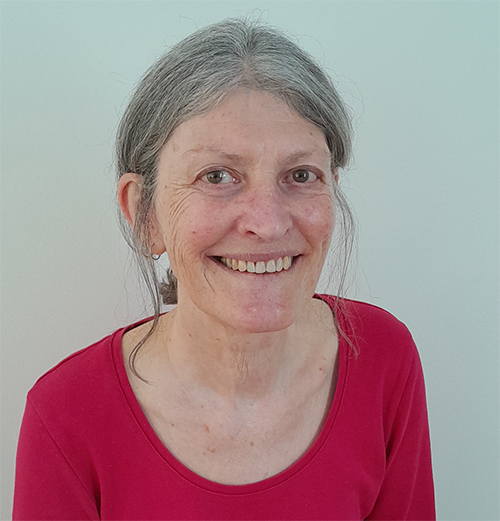
Denise Angelo works at the Australian National University and the University of Sydney. Motivated by a translational imperative, her research focuses on providing a language perspective for Indigenous communities, policymakers and educators. She works with community members investigating their language contact contexts and developing community-generated descriptions, recognising language strengths and supporting language aspirations.
She is currently coordinating an ARC-funded project about the different language ecologies of Aboriginal and Torres Strait Islander peoples, and the roles played at the local level by traditional languages, contact languages and/or Englishes. She also works on these language types with community members and teachers in numerous locations across Australia, and develops community, curriculum, training and policy responses suited to the particular needs in different language ecology contexts.

Jasmine Seymour is a Dharug woman belonging to the Burubiranggal people, descended from Maria Lock and Yarramundi. She is deeply committed to Aboriginal education and is the secretary of Da Murrytoola, the branch of the Aboriginal Education Consultancy Group local to her area. She has a Bachelor of Education (Primary) and a Masters of Indigenous Languages Education.
Together with fellow language activist Corina Norman, and in collaboration with linguist Denise Angelo, she is co-leading the research, development and delivery of staged curriculum for adults, youth and children in multiple sites across Western Sydney for the Dharug Dalang (Language) Project. In 2020–2021 Jasmine collaborated with historian Professor Grace Karskens, investigating Dharug sites, stories and knowledge of the Hawkesbury River, and was a co-curator for the Dyarubbin exhibition at the NSW State Library that emerged from that project.
Jasmine is the author and/or illustrator of Baby Business, winner of the 2020 Children's Book Council of Australia Best New Illustrator Award; Cooee Mittigar, winner of the 2020 Prime Minister’s Children’s Title Literary Award; and Open Your Heart to Country, winner of the 2023 Prime Minister’s Children’s Title Literary Award.
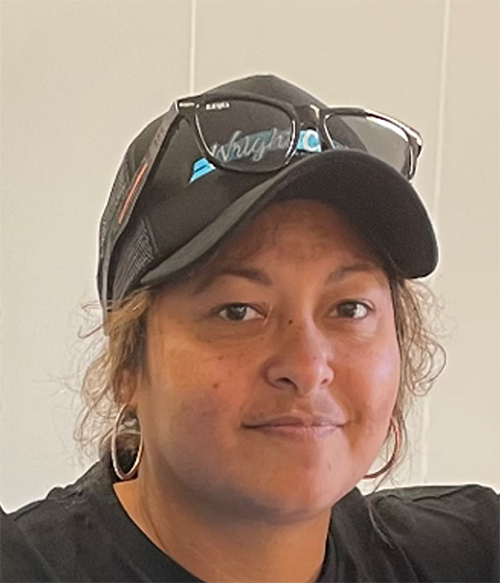
Josephine Lardy grew up in the Northern Territory – mostly in Jilkminggan community, a community which her family were instrumental in establishing a walk-off in the 1970s. Josie is an Aboriginal educator, interpreter and translator. She has a Bachelor of Education (Early Childhood) and worked as a classroom teacher at Jilkminggan School. Fluent in Kriol and English, and a qualified Kriol-English interpreter, she has been able to work bilingually with her students in the school at Jilkminggan.
She, like many other Kriol speakers, is self-taught in Kriol literacy. She uses this skill in her current role with the Indigenous Literacy Foundation, working with Kriol-speaking mums and dads and in early childhood literacy. She has worked with community members translating a suite of popular early childhood books for Kriol speaking children and their caregivers.
In the last 20 years, Josie has played an important role in building on the work of her aunties and elders to revitalise their traditional language, Mangarrayi, for younger generations. She has collaborated with these old people and non-Indigenous linguists to document, teach and create resources for Mangarrayi as L2.
She has also worked as a researcher – most recently on the development of a Mangarrayi language learning app –with Western Sydney University. Josie is currently employed as the Katherine and Perth Regions Program Coordinator for the Indigenous Literacy Foundation, an organisation that works in over 400 remote communities nationally to assist with the publishing of books created locally – many in First Languages – as well as to fund development of digital, audio or other learning resources and workshops.
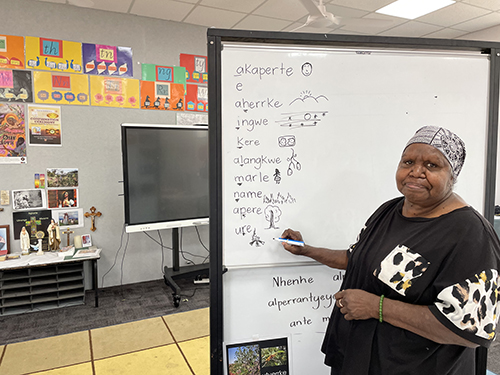
Carmel Ryan is an Arrernte language teacher, interpreter and translator. In the 1980s, she undertook courses at the Institute for Aboriginal Development in Alice Springs to develop her L1 literacy skills, and to qualify as an interpreter to work in legal and health contexts. Over many years she has worked with non-Indigenous linguists, eg. on the making of the Central and Eastern Arrernte Dictionary (first published 1994) and with missionaries on translating the Bible into Arrernte (completed in 2017).
In the 1990s, Carmel completed a Bachelor of Education (Primary) through a Remote Aboriginal Teacher Education program with La Trobe University and Batchelor College (now Batchelor Institute of Indigenous Tertiary Education).
For over 30 years, she has taught her language to both Arrernte and non-Indigenous learners from preschool through to adults in Alice Springs and in home community of Ltyentye Apurte. She was key contributor to the creation of the ground-breaking Intelyapelyape Arrernte Curriculum in the 1990s, which integrated development of children’s L1 with development of their understanding of their culture and country, and put community involvement at the forefront of preschool and school programs. Carmel also continues to mentor young Arrernte Assistant Teachers to develop their teaching and L1 literacy skills.
From crisis to transformation: towards a UK national languages strategy
The perceived crisis in Modern Languages in the UK is associated with multiple factors, including the decline in student enrolments for programs in the subject area, the withdrawal in a growing number of universities of management support for the field at degree level and a lack of public understanding of the discipline more broadly. Repetition of the language of crisis risks, however, becoming a self-fulfilling prophesy – meaning that there is a growing commitment across the four nations of the UK to reflect on the ways in which Languages and Cultures (or Languages, Cultures and Societies) as a wider field needs to adapt to the challenges of the 21st century.
The aim of this paper is to offer an overview of the broad range of initiatives that reflect this commitment to transformation. Drawing on the British Academy document Towards a National Languages Strategy, it presents policy initiatives aimed at creating a pipeline of learners across a broad range of languages as well as growing a community in which historical divisions (Modern Foreign Languages, Language-Based Area Studies, Sign Languages, Home, Heritage and Community Languages) are replaced with a new unity of purpose.
The paper also focuses on a number of interventions – associated not least with impact case studies submitted to the recent Research Excellence Framework exercise – that demonstrate a new confidence about the centrality of multilingualism to a broad range of areas of public life. This activity is associated in part with a new openness to linguistically-sensitive policymaking (evident not least in the development in the UK of a significant Civil Service Languages Network), in part with a broader interest in forging a new public idea about language(s).
The paper concludes with a discussion of the document The Importance of Languages in Global Context: An International Call to Action and invites further exploration of the ways in which we might work more actively between the UK and Australia to ensure the future health of research, teaching and broader engagement in Languages and Cultures.

Charles Forsdick is Drapers Professor of French at the University of Cambridge and Lead Fellow for Languages at the British Academy. He has a broad range of research and teaching interests, including colonial history, postcolonial literature and translingual writing. From 2012–21, Charles was AHRC Theme Leadership Fellow for Translating Cultures. He was elected a corresponding fellow of the Australian Academy of Humanities in 2023.
Disrupting inequities: diversity, inclusion and social equity in tertiary language education
Inequities are pervasive in university campuses. In our language education work, how can we collectively work together to disrupt such inequities without reproducing them?1
In this talk I build on recent research in critical language studies, queer and trans linguistics and social justice & language research to explore strategies to disrupt inequities experienced by peoples of diverse sexual orientations, gender identities, expressions and sex characteristics (SOGIESC). Research has demonstrated that LGBTIQA+ (lesbian, gay, bisexual, transgender, intersex, queer/questioning, asexual plus) students experience challenges in the language classroom (for example, Kappra & Vandrick, 2006; Liddicoat 2009; Nelson, 2010). Diverse genders and sexualities are rarely represented in second language textbooks (Gray, 2013; Moore, 2019; Paiz, 2015; Yoshida, 2023) and individual teachers have attended to this issue by making supplementary materials and integrating queer perspectives into their classroom practices (eg de Vincenti et al, 2007).
In the Australian context, legal frameworks have evolved (cf Gray 213). Institutional guidelines around diversity and inclusion which make specific mention of students and staff of diverse genders and sexualities are showcased on university websites. At this time of trans/formation, collaboration across local, disciplinary and international scales (Lawrie et. al 2017) enables language educators to go beyond diversity talk, and to firmly bring queer-affirming and trans-affirming pedagogies (Knisely & Paiz, 2021; Paiz, 2020). In collaborative work with colleagues at the Faculty of Arts, University of Melbourne, for example, we have argued that:
(a) maintaining a diverse and flexible curriculum that is inclusive of LGBTIQA+ learners (and teachers), and
(b) integrating cultural information and socio-political histories is essential (e.g Lang & Maree, In press).
In work with INGS-J colleagues, we propose that cultivating a learning environment that:
(a) does not make gender and sexuality a “problem” (Knisely & Paiz 2021; Moore 2019; Paiz 2020),
(b) is transnational in focus (Nelson, 2006), and
(c) is responsive to local contexts (Gray, 2013) is key to maintaining sustainable LGBTQIA+ affirmative Japanese language learning environments (Maree et al, 2024).
In closing, I term to research on inclusivity – which pivots on notions of “belonging” and “safety,” Belonging is widely theorised as a sense of connection anchored in an “emotional (or even ontological) attachment about ‘feeling at home’” (Yuval-Davis 2006) in relation to a broader society and/or culture. “Safety”, too, is dynamic and context dependent. “Belonging” and “safety,” therefore, both require not only cultivation, but also a collective commitment to practices which seek to understand what impedes and/or facilitates feelings and understandings of safety and belonging, this, in turn, can be brought to work that seeks to disrupt inequities.
–––
Works cited:
de Vincenti, G., Giovanangeli, A., & Ward, R. (2007). The Queer Stopover: How queer travels in the language classroom. Electronic Journal of Foreign Language Teaching, 4(Supplement 1), 58–72.
Kappra, R., & Vandrick, S. (2006). Silenced Voices Speak: Queer ESL Students Recount Their Experiences. The CATESOL journal, 18(1), 138-150.
Knisely, K. A., & Paiz, J. M. (2021). Bringing trans, non-binary, and queer understandings to bear in language education. Critical Multilingualism Studies, 9(1), 23-45.
Lang, B., & Maree, C. (In Press). In step: SOGIESC and language teaching and learning and the linguistic diversification of gender justice. In A. Díaz, S. Disbray, B. E. Hanna, A. Mikhaylova, & G. Y. Qi (Eds.), Disrupting, Decentring and Diversifying Languages and Cultures in Australian Higher Education. Canberra: ANU Press.
Lawrie, G., Marquis, E., Fuller, E., Newman, T., Qiu, M., Nomikoudis, M., Roelofs, F., & van Dam, L. (2017). Moving Towards Inclusive Learning and Teaching: A Synthesis of Recent Literature. Teaching & Learning Inquiry, 5(1), 9-21.
Liddicoat, A. J. (2009). Sexual Identity as Linguistic Failure: Trajectories of Interaction in the Heteronormative Language Classroom. Journal of Language, Identity & Education, 8(2-3), 191-202.
LePeau, L. A., Hurtado, S. S., & Davis, R. J. (2018). What Institutional Websites Reveal about Diversity-Related Partnerships between Academic and Student Affairs. Innovative Higher Education, 43(2), 125-142.
Maree, C., Arimori, J., & Watanabe, M. (2024). Towards Sustainable Practices of Diversity and Inclusion of SOGIESC in Japanese Language Education & Japanese Studies. Japanese Studies, 44(2), 211–228.
Nelson, C. D. (2006). Queer Inquiry in Language Education. Journal of Language, Identity & Education, 5(1), 1-9.
Paiz, J. M. (2019). Queering Practice: LGBTQ plus Diversity and Inclusion in English Language Teaching. Journal of Language Identity and Education, 18(4), 266-275. doi:10.1080/15348458.2019.1629933
Yoshida, M. (2023). Representations of gender and sexual orientation over three editions of a Japanese language learning textbook series. Gender & Language, 17(2), 198-221. doi:10.1558/genl.23358
1 This framing is inspired by LePeau, L. A., Hurtado, S. S., & Davis, R. J. (2018).
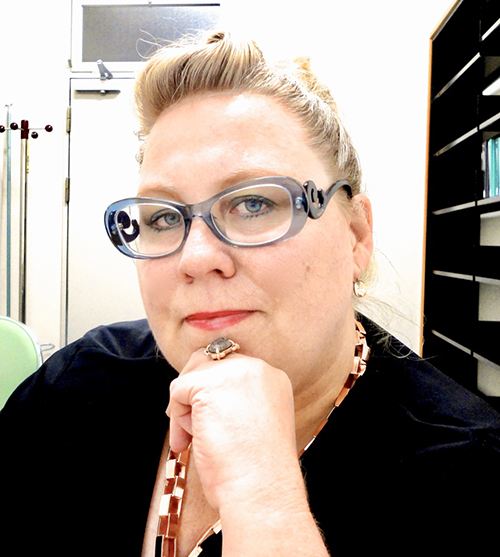
Claire Maree (PhD) is a Professor in Japanese at the Asia Institute, University of Melbourne. Claire’s work mobilises queer, linguistic and cultural studies methodologies in the study of language and identities as well as language in the media. Claire’s work has been foundational to the establishment of language, gender and sexuality studies in relation to Japanese linguistics and Japanese language education. Claire’s third monograph queerqueen: Linguistic Excess in Japanese Media (2020, OUP) examines the editing and writing of queer excess into Japanese popular culture through mediatisation of queerqueen styles. Claire leads the Gender, the Environment and Migration (GEM) Research Cluster and facilitates the Gender, Sexuality and Language Studies Research Group at the Asia Institute, University of Melbourne. Claire is a core member of the Queering the Curriculum Working Group within the Faculty of Arts at the University of Melbourne, and is co-founder of the International Network of Gender, Sexuality in Japanese Language Education (INGS-J).
For those who wish to make use of the cheaper member rates, please follow the link and become a member of the LCNAU before registering for the conference.
Concession rates apply to sessional staff, HDR students, school teachers, retired colleagues and unemployed colleagues.
Regular rate (1 August - 17 November 2024)
1) LCNAU Member - $280
2) Non-LCNAU Member - $380
3) Concession - $240
Day rates (27 - 29 November 2024)
For on-the-day booking only.
1) LCNAU Member - $140
2) Non-LCNAU Member - $180
3) Concession - $85
For enquiries, please contact lcnau2024.colloquium@sydney.edu.au.
Every Colloquium participant is responsible for booking their own accommodation.
Below you can find a list of recommended hotels around Darlington campus, some offering special rates for Colloquium participants:
When: Thursday 28 November 2024, 5:30–6:30pm AEDT
Where: Lecture Theatre 1040, Abercrombie Building (H70), The University of Sydney
In association with the Australian Academy of the Humanities' Triebel Lecture series
Secret police files as life writing, or how the Stasi made writers into ‘enemies of the state’ – Emerita Professor Alison Lewis FAHA (University of Melbourne)
With the collapse of Eastern European communism an unlikely new resource emerged from the archives of the Cold War: the classified secret police file. Unlike in Australia where ASIO files are declassified after several decades, in Eastern Europe the secret police files of the defunct communist regimes were opened to select members of the public almost immediately.
In reunified Germany the files of the Ministry for State Security (Stasi) of its communist twin state, the German Democratic Republic, have been key instruments for lustration and transitional justice as well as personal memory.
Above all, they are crucial to truth-telling, indispensable for exposing collaborators and hearing the stories of victims, many of whom were writers and cultural producers. In light of this, researchers have for some time argued for reading secret police files as forms of life writing, as “arresting biographies” (Vatulescu) compiled to arrest suspects or as “hostile biographies” (Lewis).
In this lecture I expand on this idea of the files as life writing by exploring dominant technologies of surveillance used by the Stasi against intellectuals such as photographic and human-to-human surveillance. Using a range of examples, I argue that Stasi files were a unique kind of secret political-bureaucratic life writing that not only captured masses of raw data on suspects but also turned the latter, mostly against their will, into likely enemies of the state. The Stasi mobilised cultural techniques of biography and portraiture in their blanket gathering of intelligence but also in their hybristic efforts to “play God” in people’s lives (Wolf Biermann). This is most in evidence in the Stasi’s efforts to script major life events ranging from marital breakdown, heart attacks, professional failure and forced exile.
In addition, I undercover how these portraits of state enemies acquired a life of their own through the Stasi’s elaborate administrative procedures, guidelines and record-keeping processes that are testament to the ministry’s quest to be a modern bureaucracy.
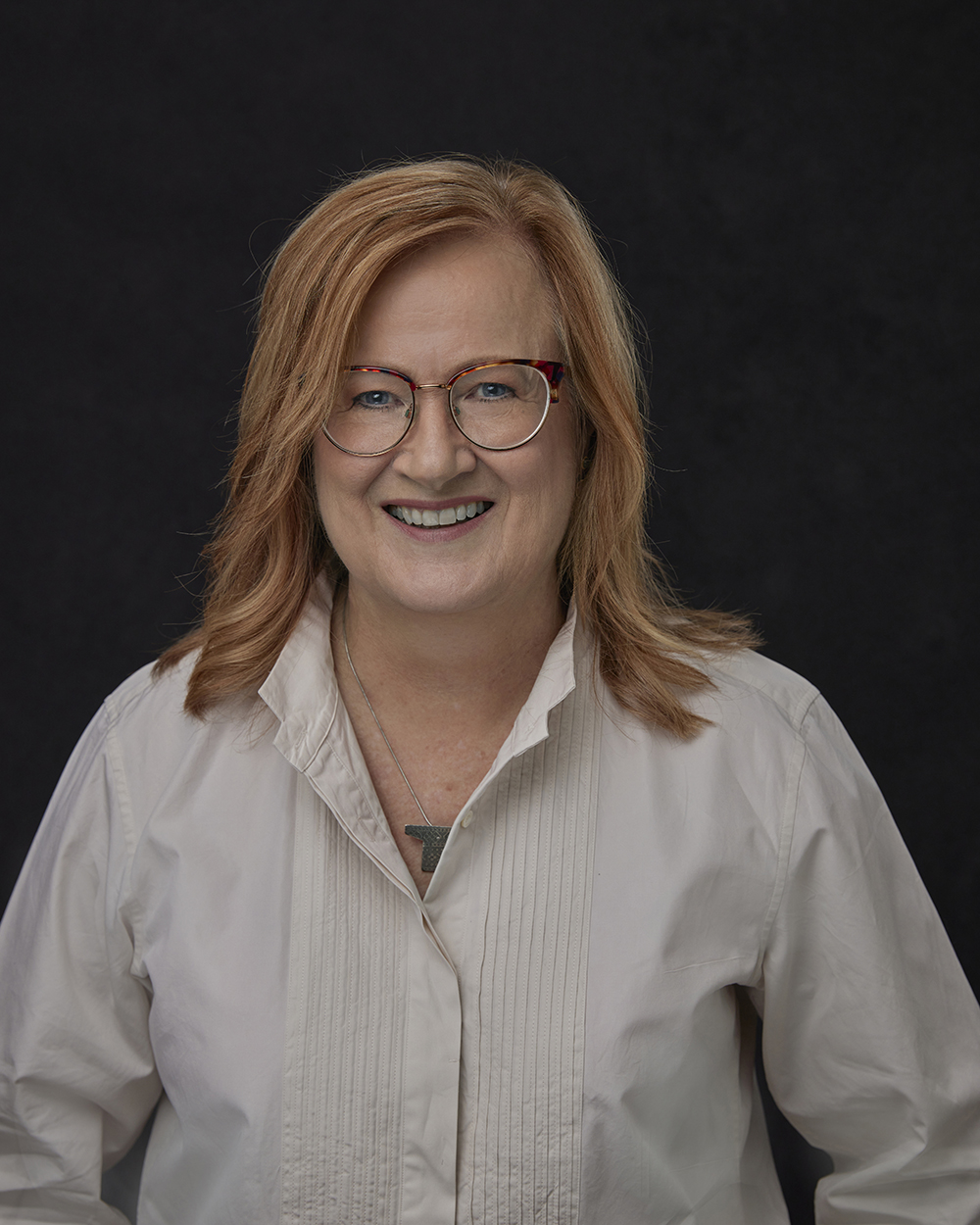
Alison Lewis is Professor Emeritus in German Studies at The University of Melbourne, Australia. She has published extensively on German literature, culture, film and intelligence history. Her most recent books are A State of Secrecy: Stasi Informers and the Surveillance of Culture (Potomac Books 2021), Secret Police Files from the Eastern Bloc: Between Surveillance and Life Writing (with V. Glajar/C. Petrescu) (Camden House 2016) and Cold War Spy Stories from Eastern Europe (with V. Glajar/C. Petrescu) (Potomac Books 2019). For her contribution to promoting German abroad she was awarded the prestigious Friedrich-Gundolf Prize of the German Academy for Language and Literature in 2022.
LCNAU invites scholars, practitioners, early career researchers and postgraduate students to consider following questions:
We welcome abstracts and panel proposals addressing the following areas of interest:
The organising committee will also accept for consideration proposals which are not strictly related to these areas, but which focus on the field of languages and cultures more broadly.
Call for papers closed on 5 May 2024.
For all colloquium-related queries, please contact: lcnau2024.colloquium@sydney.edu.au
LCNAU is a network that brings together individuals, language programs, university structures and tertiary institutions. It aims to strengthen the tertiary languages sector in Australia through advocacy, collaboration, research and support.
LCNAU provides a vital link across the languages sector, by enabling increased systematic and regular collaboration and exchange. Leadership and guidance are urgently needed at various levels, from tutor to professor. LCNAU also strives to meet the need for leadership around models of delivery, models of assessment and curriculum development; this is underpinned by LCNAU’s goal of providing the most effective and rewarding learning experience for students.
LCNAU also functions as a lobby group for language education, something which has been sorely lacking. It contributes to challenging and changing public attitudes, which constitute an ongoing obstacle to achieving language education policy goals. LCNAU also interacts productively with other education sectors (primary and secondary), with business, and with other stakeholders.
1 Harari, Yuval Noah. (2023, May 14). AI and the future of humanity | Yuval Noah Harari at the Frontiers Forum – by Yuval Noah Harari [Video]. YouTube.
2 Chakrabarty, Dipesh. Foreword. (2022). In J. Thomas (ed.), Altered Earth: Getting the Anthropocene Right (pp. xi-xiv). Cambridge: Cambridge University Press. doi:10.1017/9781009042369.001
Connect with the School of Languages and Cultures